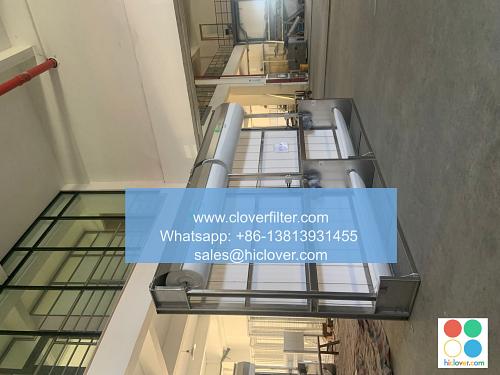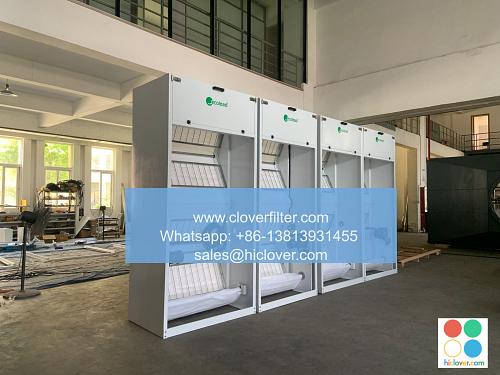Air Filter Performance Evaluation: A Study of Various Filter Types

Air filter performance evaluation is a critical aspect of maintaining good indoor air quality, and it involves assessing the effectiveness of different filter types in removing airborne pollutants. In this article, we will delve into the world of air filtration, exploring the various types of filters available, their applications, and the key factors that influence their performance.
Introduction to Air Filtration
Air filtration is the process of removing airborne contaminants, such as dust, pollen, smoke, and other particles, from the air. This is achieved through the use of air filters, which are designed to capture these particles and prevent them from circulating in the air. The importance of air filtration cannot be overstated, as it plays a crucial role in maintaining good indoor air quality, which is essential for human health and wellbeing.
Types of Air Filters
There are several types of air filters available, each with its own unique characteristics and applications. Some of the most common types of air filters include:
- HEPA (High Efficiency Particulate Air) filters, which are designed to capture 99.97% of particles as small as 0.3 microns
- Activated carbon filters, which are effective in removing gases, odors, and chemicals from the air
- Ionizers, which use negative ions to attract and trap particles
- Electrostatic filters, which use an electrostatic charge to attract and capture particles
- Fiberglass filters, which are a cost-effective option for basic air filtration
- UV (Ultraviolet) filters, which use ultraviolet light to kill bacteria, viruses, and other microorganisms
- Filter media, which refers to the type of material used to capture particles
- Filter thickness, which affects the filter’s ability to capture particles
- Airflow rate, which affects the filter’s ability to remove pollutants
- Pressure drop, which affects the filter’s impact on the overall system
- Indoor air quality improvement, which is essential for human health and wellbeing
- HVAC (Heating, Ventilation, and Air Conditioning) systems, which rely on air filtration to maintain good indoor air quality
- Cleanrooms, which require highly efficient air filtration to maintain a sterile environment
- Industrial processes, which often generate airborne pollutants that require removal
- Transportation systems, which can benefit from air filtration to improve passenger comfort and safety
- Nanofiltration, which involves the use of nanomaterials to capture ultra-fine particles
- Biological air filtration, which involves the use of microorganisms to remove airborne pollutants
- Smart air filtration, which involves the use of sensors and machine learning algorithms to optimize air filter performance
Performance Evaluation of Air Filters
The performance of air filters is typically evaluated based on their ability to remove airborne pollutants, as well as their impact on airflow and pressure drop. Some of the key factors that influence air filter performance include:
Applications of Air Filtration
Air filtration has a wide range of applications, including:
Conclusion
In conclusion, air filter performance evaluation is a critical aspect of maintaining good indoor air quality. By understanding the various types of air filters available, their applications, and the key factors that influence their performance, we can make informed decisions about the best air filtration solutions for our specific needs. Whether it’s for indoor air quality improvement, HVAC systems, cleanrooms, industrial processes, or transportation systems, air filtration plays a vital role in maintaining a healthy and safe environment.
Future Directions
As air filtration technology continues to evolve, we can expect to see new and innovative solutions emerge. Some potential future directions include:
By staying at the forefront of air filtration technology, we can continue to improve indoor air quality, reduce airborne pollutants, and create healthier and safer environments for everyone.
Key words: air filter performance evaluation, air filtration, indoor air quality, HVAC systems, cleanrooms, industrial processes, transportation systems, nanofiltration, biological air filtration, smart air filtration
You haven’t provided a question or prompt for me to respond to. Please provide more context or information so I can assist you. What would you like to talk about or ask?


